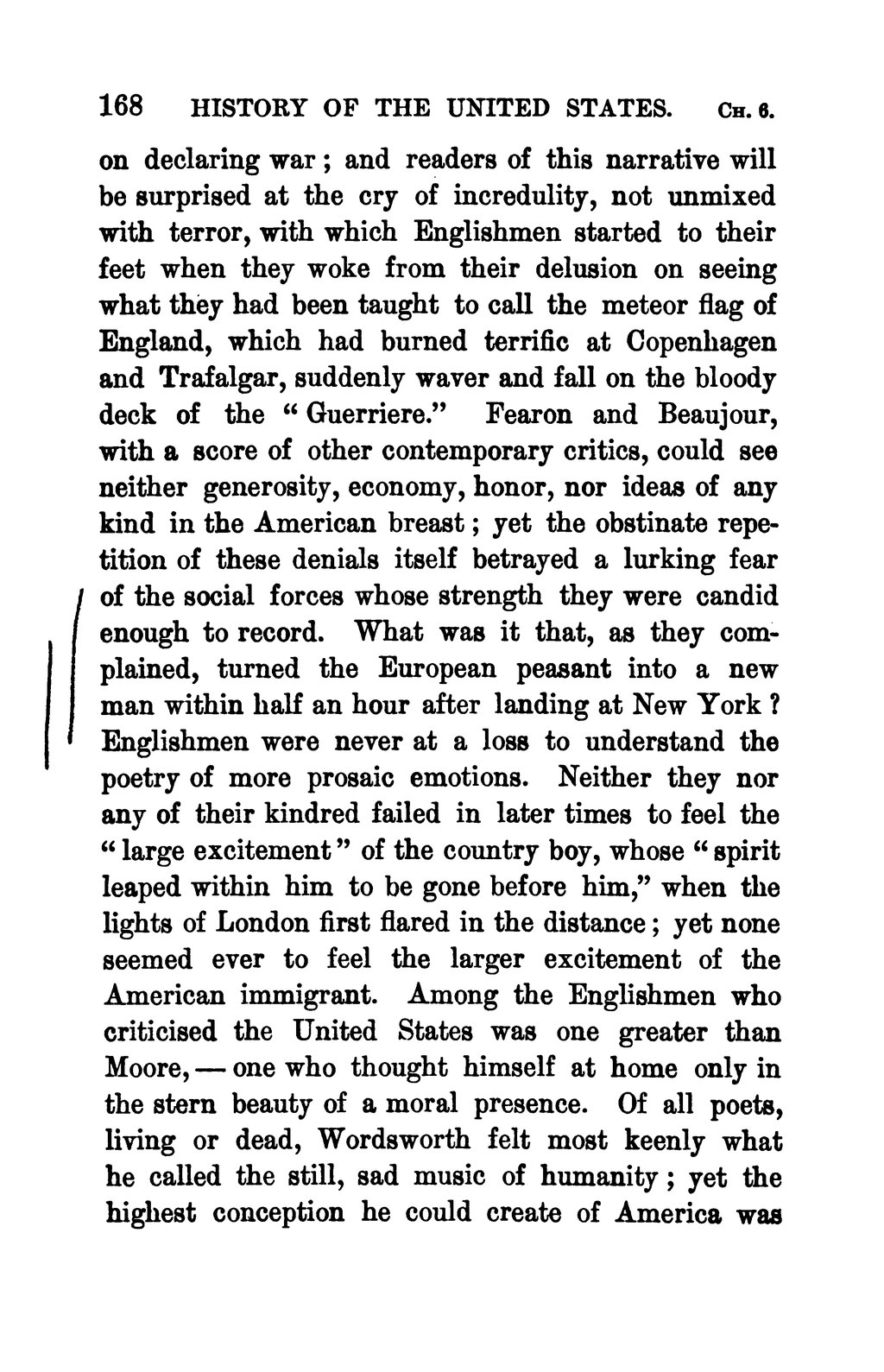on declaring war; and readers of this narrative will be surprised at the cry of incredulity, not unmixed with terror, with which Englishmen started to their feet when they woke from their delusion on seeing what they had been taught to call the meteor flag of England, which had burned terrific at Copenhagen and Trafalgar, suddenly waver and fall on the bloody deck of the "Guerriere." Fearon and Beaujour, with a score of other contemporary critics, could see neither generosity, economy, honor, nor ideas of any kind in the American breast; yet the obstinate repetition of these denials itself betrayed a lurking fear of the social forces whose strength they were candid enough to record. What was it that, as they complained, turned the European peasant into a new man within half an hour after landing at New York? Englishmen were never at a loss to understand the poetry of more prosaic emotions. Neither they nor any of their kindred failed in later times to feel the "large excitement" of the country boy, whose "spirit leaped within him to be gone before him," when the lights of London first flared in the distance; yet none seemed ever to feel the larger excitement of the American immigrant. Among the Englishmen who criticised the United States was one greater than Moore,—one who thought himself at home only in the stern beauty of a moral presence. Of all poets, living or dead, Wordsworth felt most keenly what he called the still, sad music of humanity; yet the highest conception he could create of America was
